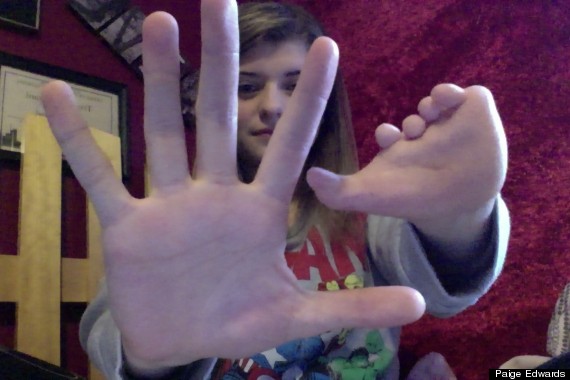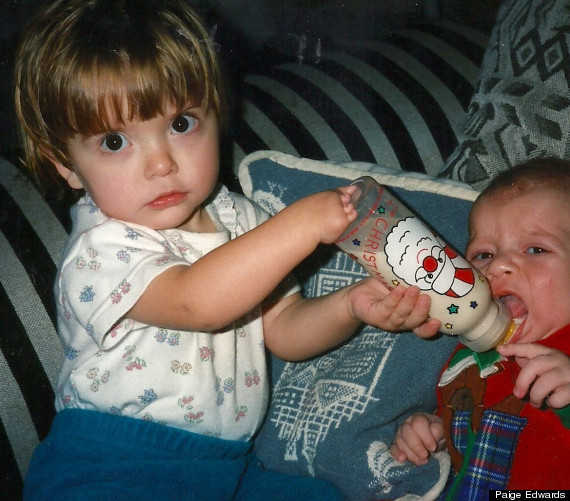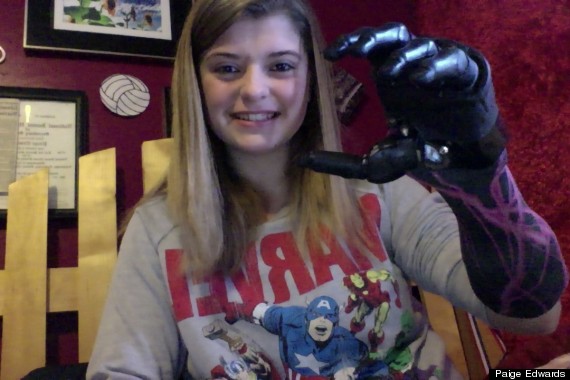Different.
That's what Paige Edwards is. But this week, the 17-year-old took to Imgur, a photo-sharing website, to prove just how awesome "different" can be.[1]

Paige, a New York native, was born missing the fingers on her right hand.

"But I can do everything that everyone else can do," she writes in her album (which is aptly named "Different").
In the photos, Paige explains what it's been like to grow up with fingers missing. She addresses the common questions that people ask her ("What happened to your hand?") and shows off the prosthetic arm she got when she was 14.

Paige told The Huffington Post in an email that she decided to post the photographs because she'd recently seen a lot of "hate" and "judging" on the Internet. She wanted to make a statement that would inspire people to accept their own and others' differences:
Basically the point I am trying to make is don’t concentrate on what someone doesn’t have. Concentrate on what they do. Teach your children to accept everyone. I always meet parents who scold their children for asking what happened to my hand, but truthfully that makes them afraid. It makes being different into something that should be looked down on, as if it is something bad. Let them ask questions, let them learn that being different is OKAY!

Since posting her album, Paige has been overwhelmed with messages from readers. She's heard from a 22-year-old in Texas with a hand just like hers, and a mother with a 6-month-old with the same condition.
"The mother was asking about how she should handle the situation," Paige told HuffPost. "My mom is actually on the phone with her right now!"
Even though Paige has gotten a few negative comments, she's not going to stop smiling any time soon.
"And to end on a good note," she writes on Imgur, "I can make a smiley face with my hand. Have a good day!"

Also on HuffPost:
References
- ^ prove just how awesome "different" can be. (imgur.com)
- ^ Send us a tip (www.huffingtonpost.com)
- ^ Send us a photo or video (www.huffingtonpost.com)
- ^ Suggest a correction (www.huffingtonpost.com)

0 comments:
Post a Comment